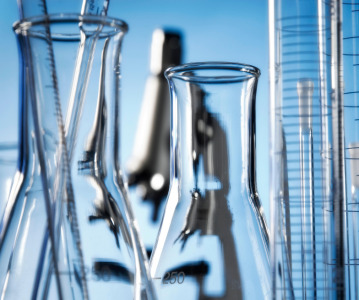India: In Quest for Next Gen Pharma Profession?als

The Indian pharmaceutical sector, driven by increased knowledge skills, improved quality and increased demand (domestic and international), has witnessed tremendous growth during the past few years. India is among the top six producers of pharmaceuticals in the world and ranks fourth in terms of total pharma market share in the Asia Pacific.1 The country requires a large pool of skilled manpower to meet the growing demands of the growing Indian pharmaceutical industry.
The origin of pharmacy education in India dates back to 1899 in Madras where the first pharmacy institution was set up.2 In the year 1932, Prof M LSchroff, father of pharmacy education in India, started the undergraduate programme in pharmacy at Banaras Hindu University, which soon witnessed a rise in pharmacy schools around the country.3
Pharmacy education developed at a much faster rate in India since the late 1980s spurred by rapid growth, privatisation and economic growth in the sector. At present there are more than 1500 institutions offering various pharmacy programmes at undergraduate, post graduate, diploma and Pharm. D level with a combined annual intake of more than 100,000 students.4
“The availability of vast pool of technically skilled manpower and well-established state of art research units has made Indian pharma as global pharma destination for R&D activities. With successful implementation of post graduate programmes in hospital setting and research institutions, the ecosystem is encouraging the private sector to engage in R&D and develop innovative products,” said Mr Rajeev Kher, Additional Secretary, Department of Commerce, Ministry of Commerce and Industry, Government of India.
The domestic pharma market is estimated to touch US$49 billion by 2020.5 The projected human resource requirement to match this growth is estimated to be about 21,50,000 by 2020.6 The Government of India has taken a series of measures to meet the projected demand of pharma professionals in the future:
1. The Department of Pharmaceuticals has projected an investment Rs 3000 crore (US$ 478.4 million) to set up 10 more National Institute of Pharmaceutical Education and Research (NIPER) over the next few years to strengthen the human resource base.7
2. Clinical Research Education and Management Academy (CREMA) is another institute that exclusively provides courses specific to clinical research and healthcare management. It is amongst the first institutions dedicated to promoting high-quality clinical research and healthcare management education.
3. Scholarships programmes are awarded to the meritorious students, which help inculcate a competitive spirit amongst students pursuing higher education. Some noteworthy examples include:
• Central Sector Scheme of Scholarship for College and University Students
• Post Graduate Scholarship for All India Council for Technical Education
• AICTE, UGC and NIPER provide merit based stipend and fellowship grants to students pursuing higher education in pharmacy
4. The introduction of Pharm D programme along with the revised framework of Indian pharmacy education is expected to ensure quality human resources meeting global standards.
“Healthcare is changing more rapidly than almost any other field. Demand drivers like increasing expenditure on health in the domestic market and strong growth in generic sales in regulated markets are expected to sustain demand of pharma professionals in the future,” said Mr SudhanshuPandey, Joint Secretary, Department of Commerce, Ministry of Commerce and Industry, Government of India.
“Young pharmacy professionals in India can expect an increase in opportunities and jobs, which place an increased premium on skills in the near future as the industry experiences the next level of growth. The real task at hand is to sustain the predicted growth and incubate a strong educational structure that can produce world class pharmacy professionals,” said Ms Aparna Dutt Sharma, Chief Executive Officer, India Brand Equity Foundation (IBEF).
The skill base has served well to meet the niche demands for R&D skills and manufacturing infrastructure in the country so far. With the roadmap for future growth in place, the country should provide the gen next pharma professionals.
Data points:
1. IBEF Pharmaceuticals Report – Page 7, para 1.
2. Article from Dr B Suresh, Principal, J.S.S. College of Pharmacy, Ootacamund – Para 1, line 7.
3. Article from Dr K G Revikumar, Principal, School of Pharmacy, Amrita Deemed University, Kochi, Kerala – Para 3, line 2.
4. International Current Pharmaceutical Journal – Page 3, para 3, line 18.
5. PwC Report: India Pharma Inc.: Capitalising on India’s Growth Potential – Page 15, para 2, line 3.
6. Planning Commission Working Groups Report – Page 4, para 2, line 4.
7. Indian Pharmaceutical Association – Page 3, para 2, line 5.
Related News
-
News Ophthalmologic drug product Eylea faces biosimilar threats after FDA approvals
Regeneron Pharmaceutical’s blockbuster ophthalmology drug Eylea is facing biosimilar competition as the US FDA approves Biocon’s Yesafili and Samsung Bioepis/Biogen’s Opuviz. -
News ONO Pharmaceutical expands oncology portfolio with acquisition of Deciphera
ONO Pharmaceutical, out of Japan, is in the process of acquiring cancer-therapy maker Deciphera Pharmaceuticals for US$2.4 billion. -
News First offers for pharma from Medicare drug price negotiations
Ten high-cost drugs from various pharma manufacturers are in pricing negotiations in a first-ever for the US Medicare program. President Biden’s administration stated they have responded to the first round of offers. -
News Eli Lilly’s Zepbound makes leaps and bounds in weight-loss drug market
In the last week, Eli Lilly has announced their partnership with Amazon.com’s pharmacy unit to deliver prescriptions of Zepbound. Zepbound has also surpassed Novo Nordisk’s Wegovy for the number of prescriptions for the week of March 8.&nbs... -
News Chasing new frontiers at LEAP – The National Biotechnology Strategy Keynote
On the third day of LEAP (4–7 March 2024, Riyadh Exhibition and Convention Centre, Malham, Saudi Arabia) the CPHI Middle East team hosted the Future Pharma Forum, to set the scene for an exciting new event for the pharma community, coming to Riya... -
News Pfizer maps out plans for developing new oncology therapeutics by 2030
Pfizer dilvulges plans to investors around growing their cancer portfolio, and the drugs they will be focusing on developing after their aquisition of Seagen in 2023. -
News Generics threat to Merck’s Bridion as Hikma seeks pre-patent expiry approval
Merck has disclosed they received notice from Hikma Pharmaceuticals for seeking a pre-patent expiry US FDA approval for Hikma’s generic version of Merck’s Bridion. -
News Bernie Sanders vs Big Pharma - the latest on drug price negotiations
In a hearing in front of the US Senate, three of the biggest pharmaceutical companies in America are challenged over exorbitant prescription drug prices, with Sanders claiming their actions are limiting the population's access to affordable healthc...
Position your company at the heart of the global Pharma industry with a CPHI Online membership
-
Your products and solutions visible to thousands of visitors within the largest Pharma marketplace
-
Generate high-quality, engaged leads for your business, all year round
-
Promote your business as the industry’s thought-leader by hosting your reports, brochures and videos within your profile
-
Your company’s profile boosted at all participating CPHI events
-
An easy-to-use platform with a detailed dashboard showing your leads and performance
.png)

.png)
.png)


.png)
.png)